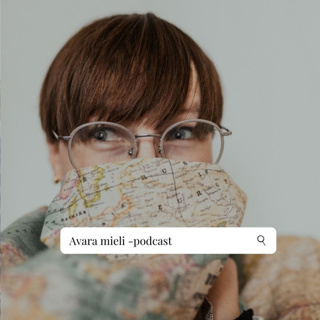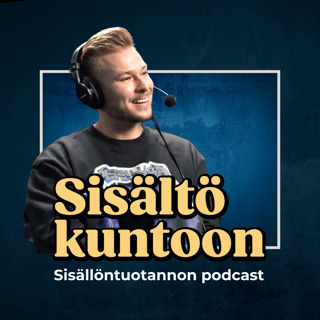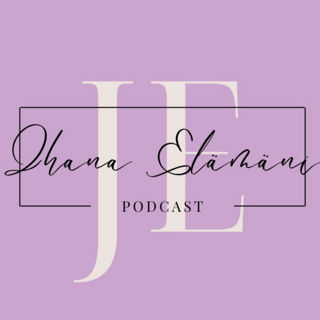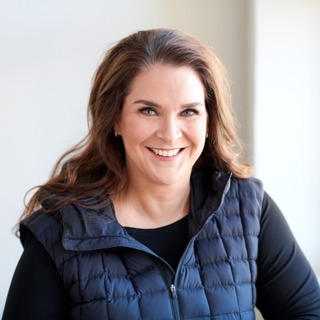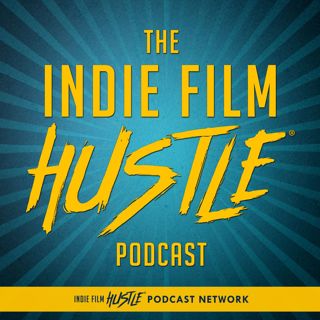
IFH 028: How Quentin Tarantino is Keeping Film Alive w/ The Hateful Eight
Ah, the good ol' digital vs film debate. Well you won't get any of that in the article or podcast. With Quentin Tarantino's The Hateful Eight coming out Dec 25, 2015, and it being shot in "Glorious 70mm," there has been a lot of chatter about film again.With filmmakers like Christopher Nolan shooting 35mm and IMAX on his latest film and JJ Abrams shooting Star Wars: The Force Awakens in 35 mm, film seems to still be an art form that many filmmakers are not ready to let go of just yet.What Quentin Tarantino has done with The Hateful Eight is unique. He has brought back to life the Ultra Panavision 70 technique along with anamorphic 65mm lenses that haven't been seen since the 60's.Here are some specs:Camera: Panavision 65 HR Camera and Panavision Panaflex System 65 StudioLenses: Panavision APO PanatarFilm Stock 65mm: Kodak Vision3 200T 5213, Vision3 500T 5219Aspect Ratio: 2.75:1Listen to the episode for the rest.Become a supporter of this podcast: https://www.spreaker.com/podcast/indie-film-hustle-a-filmmaking-podcast--2664729/support.
1 Joulu 201520min

IFH 027: Kico Velarde - From Being Broke to Emmy Winner
IFH 027: Kico Velarde - From Being Broke to Emmy WinnerThe Cinderella story that is Kico Velarde's life is remarkable. From being a struggling out of work editor to becoming the toast of the Cannes International Film Festival to winning an Emmy for producing Jay Leno's Garage. Crazy!!!His film PVC-1 - was accepted into the Director's Fortnight at the Cannes International Film Festival and was nominated for the Camera D' Or Award in 2007. He became the toast of the festival but barely had two cents to rub together as he spent his last cash on tickets to the festival.After the festival it took sometime to get back on his feet but then got an opportunity of a lifetime, to work as an editor on a small YouTube show about Jay Leno's Garage. Fast forward a year and he wins an Emmy for the show and the rest is history.Kico's story is truly an inspirational one. Take a listen and get ready to be inspired.Become a supporter of this podcast: https://www.spreaker.com/podcast/indie-film-hustle-a-filmmaking-podcast--2664729/support.
26 Marras 201549min

IFH 026: Is Film School Really Worth the Cost?
Is Film School Really Worth the Cost?Let me start by saying that I’m a big believer in education and constant learning throughout life. I believe that the only way to truly experience the amazing things the world has to offer is by educating yourself as much as humanly possible.With that said, people who go to film schools to educate themselves about the basics of filmmaking are fools. Now full disclosure, I was one of those fools.A little about me, I’ve been in the film industry for almost twenty years. I started my filmmaking journey by attending a technical college in Orlando, FL in 1995. My first job in the industry was in the post-production world.As years went by I learned different crafts and wore different hats; I became a director, writer, producer, editor, colorist, post-production supervisor and visual effect supervisor.I’ve done pretty much almost every job imaginable in the film business. In my multicolor travels I’ve had the opportunity to work with numerous indie filmmakers, with Oscar® and Sundance winners and even a Moose Jaw Film Festival winner, so every kind of filmmaker under the sun.When I went to film school non-linear editing was just getting off the ground. No AVID, Final Cut or After Effects. No DSLRs. No RED Camera. No Mini-DV cameras. No low cost digital VFX. No YouTube. No DVDs with awesome film commentaries and by the way, the Internet was just getting started.Listen to the episode for the skinny!Become a supporter of this podcast: https://www.spreaker.com/podcast/indie-film-hustle-a-filmmaking-podcast--2664729/support.
24 Marras 201517min

IFH 024: How I Made Over $90,000 Selling my Short Film
So I directed a small action short film a few years back called "BROKEN." I shot the film on MiniDV Tape (yes I'm old) on the Panasonic DVX 100a, the indie film workhorse of its day. My team and I filmed it in West Palm Beach Florida (not exactly the Mecca of the film industry) and it starred only local, non named actors. Now once the filming was over I marketed the living hell out of that little short. It went on to screen at over 250 international film festivals, win countless awards and be covered by over 300 news outlets. That little film had a life of it's own. I even got a review of legendary film critic Roger Ebert:"BROKEN is essentially a demonstration of the mastery of horror imagery and techniques. Effective and professional." - Roger EbertNow you must be asking, "But Alex how the hell did you make money with it?" Well, I knew that no one would pay real money for a 20 minute short film, shot on MiniDV, with no name actors and from a first time director to boot. So I planned to create a guerrilla indie film school with over 3 hours of footage, tutorials, commentaries and more. For the whole story take a listen.Become a supporter of this podcast: https://www.spreaker.com/podcast/indie-film-hustle-a-filmmaking-podcast--2664729/support.
17 Marras 201517min

IFH 023: Crowdfunding Your Indie Film Like a Pro with Emily Best
Crowdfunding has always been a mystery to me. I never really understood how indie filmmakers can raise $50,000, $100,000 or $1,000,000 to make their films. I tried once with the "if I built they will come" idea but they never came. When I discovered this weeks guest, Emily Best CEO and founder of the indie film crowdfunding website Seed & Spark, I had to get her on the show. I attempted to squeeze out of her every bit of crowdfunding knowledge I could. We discuss:How to create a successful crowdfunding campaign?What are the biggest mistake indie filmmakers make when crowdfunding their film?How should indie filmmakers crowdsource (building an audience for you, your film or your company)?How do indie filmmaker determine how much to ask for when crowdfunding?How do you build a killer crowdfunding page and video?What incentives should you give when crowdfunding?How do you build momentum so your audience will follow your film's creation from beginning to end?How do you determine if your film has an audience?All of these question on crowdfunding are answered and more. Seriously this podcast is a condensed master class on crowdfunding. I was selflessly asking the questions I wanted the answers to and now you guys benefit as well. Enjoy!Become a supporter of this podcast: https://www.spreaker.com/podcast/indie-film-hustle-a-filmmaking-podcast--2664729/support.
12 Marras 201558min

IFH 022: Does Your Indie Film Have a Audience?
I'm never surprised anymore when I speak to filmmakers and ask them one simple but powerful question, does your film have an audience?I usually just get a blank stare. This is probably the most important question you can ask yourself as a indie filmmaker. Now if you are making film as art and have no intention or care at all about making money with your film then should stop reading this email. Now, there's nothing wrong with that but that is not what I'm discussing here today. For the rest of us that want and need to make money with our films these few little words should be your mantra in the development process. Does Your Indie Film Have a Audience?Most filmmakers get so excited by the concept of a story, the emotion or just with the idea of making a feature film that they never ask the question. They are scared to because it might stop the fun they are having. Trust me I know the feeling.Listen to this episode and find out some tips and tricks to see if your film has an audience. Become a supporter of this podcast: https://www.spreaker.com/podcast/indie-film-hustle-a-filmmaking-podcast--2664729/support.
10 Marras 201513min

IFH 021: Wakaliwood: Introducing Uganda's Quentin Tarantino Isaac Nabwana with Alan Hofmanis
Imagine you were back in the early 1900’s, when the film industry was a newborn. People were learning and experimenting with the new technology of moving pictures.Craftsmen were excited about discovering new ways of creating art with this powerful and amazing new technology. You would think that could never be recreated in todays high tech world but you would be mistaken.May I introduce you to Wakaliwood. A remarkable filmmaker by the name of Isaac Nabwana from Ramon Film Productions has created the Ugandan film industry, almost single handily without having any of the filmmaking knowledge or updated filmmaking technology.As we get to study the giants that came before us like Orson Welles, Stanley Kubrick, Martin Scorsese, David Fincher, and Akira Kurosawa, Isaac only had his imagination and his undeniable passion for telling stories.Isaac is easily one of the most passionate filmmakers I’ve ever met. With all the opportunities and technology we in the United States take for granted, he created an entire film industry with basically string and tape.On this podcast we get a true understanding of what the definition of “passion” is. Alan Hofmanis and Isaac Nabwana open up on how they make a Wakaliwood action film, how Isaac taught himself every aspect of the filmmaking process and what he would like to see Ramon Films Production and Wakaliwood become on the world stage.I alway hear excuses why indie filmmakers don’t pull the trigger on making their independent film. Like not enough money, I don’t know any screenwriters, don’t have the camera I want, can’t get name actors, don’t understand post production, can’t find people to help and the list goes on and on. I hope this podcast lights a fire under the asses of every indie filmmaker that listens to it.Become a supporter of this podcast: https://www.spreaker.com/podcast/indie-film-hustle-a-filmmaking-podcast--2664729/support.
5 Marras 201554min

IFH 020: Why Indie Filmmakers Should NOT Shoot 4k!
An issue I see come up again and again is indie filmmakers shooting a format that they can't handle in post production. Currently the big buzz word is "Ultra High Definition."Technically, "Ultra High Definition" is actually a derivation of the 4K digital cinema standard. However while your local multiplex shows images in native 4096 x 2160 4K resolution, the new Ultra HD consumer format has a slightly lower resolution of 3840 X 2160. Now while having a larger image to play with is better it does bring a ton of baggage along with it. RED Cameras started popularizing 4k with it's first camera the RED ONE. It was so far beyond anything else on the market at the time that it ignited the imagination of indie filmmakers everywhere. Now shooting 4k in todays world is a bit different. It cost much more than you'd expect once you factor in all the things you'll be dealing with down the pipeline.In this episode I go over a ton of info on why you shouldn't shoot 4k if you're an indie filmmaker.Become a supporter of this podcast: https://www.spreaker.com/podcast/indie-film-hustle-a-filmmaking-podcast--2664729/support.
3 Marras 201516min











